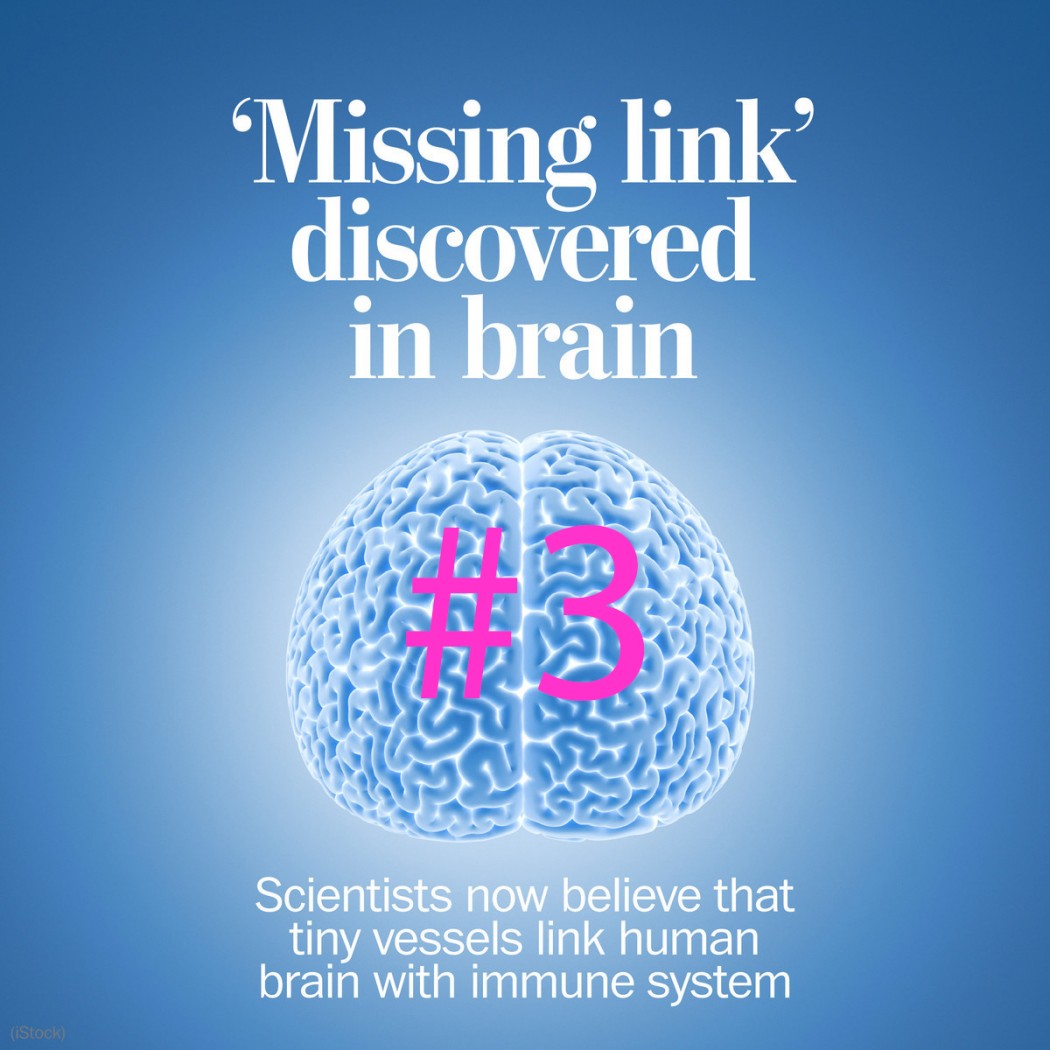Until recently scientists didn’t know how the brain disposed of dead or damaged cells. A recent study published in Nature discusses the discovery of microscopic lymphatic vessels connecting the brain to the immune system. This is a major discovery. Some are saying it will redefine brain science. When the immune system becomes over taxed it can attack the healthy cells as in the case of rheumatoid arthritis, MS and lupus, and so forth. Now scientists can examine why the brain isn’t able to flush out the infected cells leaving the healthy ones intact. This recent study has already been replicated in Finland. People are eager to consider these findings and the implications on Autism and Alzheimer’s, along with many other brain disorders.
In this Washington Post piece we learn more about the study and its implications on future research.
“Throw out the textbooks” and “missing link” are words rarely heard anymore in science, but that’s what researchers around the world are saying about the recent discovery of microscopic lymphatic vessels connecting the brain to the immune system.
That physical link was long thought absent, confounding scientists who study neurological disorders with an immune component. The vessels were found in mice, by accident, by University of Virginia researchers who published their results in Nature. If confirmed in humans, experts say, the discovery could have profound implications for a range of conditions including chronic fatigue syndrome, autism, multiple sclerosis and Alzheimer’s disease.
Lymphatic vessels, which piggyback on blood vessels, distribute immune cells to tissues to fight infection and carry fluid away from tissues to dispose of cellular waste. This complex drainage system has been found in nearly every part of the human body but not, until now, in the brain.
“No one knew there were those ‘pipes’ in there that could take out the brain’s trash,” said Jonathan Kipnis, director of the university’s Center for Brain Immunology and Glia and the study’s senior author. “This is a huge leap in defining the lymphatic vessel system.”
When the body is fighting a foreign invader, such as a virus, the lymphatic system carries immune cells to the site of the infection. Sometimes, however, the system becomes overactive and attacks healthy tissue, as in the case of autoimmune diseases such as rheumatoid arthritis, MS and lupus. An overactive immune system and alterations of gut microbes have also been linked to autism.
This discovery, experts say, could also open new avenues of research into Alzheimer’s. Perhaps, for example, the lymphatic system of the brain is failing to flush out the toxic plaques and tangles that are the molecular hallmarks of the disease.






